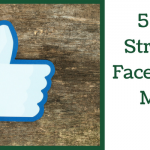As the name suggests, marketing automation is a way of making parts of your marketing campaigns run by themselves.
Realistically, this can mean almost anything automated that’s connected to your marketing. That’s one of the benefits of automation, it can be scaled to any size, from small processes that help you to complete administrative tasks, to much larger systems where almost all of your online marketing is running itself.
Most often, marketing automation is used to refer to marketing systems which allow a company to send automatic marketing communications to leads that are personalized, to them, based on their behavior.
Marketing Based On Behavior
As an example, you may have two landing pages for different services: Service A and Service B, with each landing page collecting the contact details of the user.
This would already throw up a few options going forward. Two of which are:
- Send the same email to people who signed up on the Service A and Service B pages.
- Send one email to people who signed up on the Service A page and another to those that signed up on Service B with more specific messages.
Both options have drawbacks. If you send the same message to both types of people, the messaging will have to be generic enough to apply to both of them – so may not be effective.
However, if you send a specific email to both people, that means more of your time will be spent on looking at email lists and figuring out what emails to send to who – a basic administrative task.
The solution is to use the second technique, but to automate it so the administrative side is done for you. If somebody signs up on the Service A page, they automatically get sent the relevant message.
Why even make specific messages for those leads though? Why not just send the same email to everybody?
Well, the more personalized you get in your messaging, the easier it is to nourish your leads. If you know somebody is interested in Service A, then it makes sense to talk to them about Service A and not something irrelevant, which is what often happens.
Why Is Marketing Automation Important?
In the above example, you can create an automated system that sends an email about Service A to people who signed up to a mailing list on the Service A page. Likewise, those that sign up on the Service B page can automatically receive an email about Service B.
This is one simple example, but the more information you collect about your leads, the more targeted your message can be and then the more easily you’ll be able to convert them to sales.
While a lot of marketing focuses on hitting a target audience that is interested in your particular product or service, automated marketing is going one step further and looking closer at people within that target audience and finding out exactly what they’re interested in and where they are in the buying process. Something which may otherwise be done by a marketer by looking at the data.
The main upside of using automated marketing is that it saves marketers a lot of time, which also means a lot of money. By going through your marketing strategy and figuring out where you can use automation to cut down on the administrative tasks, you free up more time to plan actual strategy. Rather than making decisions on a lead by lead basis, you instead create rules to make those decisions for you automatically.
Using automation also helps to bridge the gap between marketing and sales. When you automate you need to think about your entire marketing and sales systems and how they tie together, which leads to more integration between the two departments.
In a perfect example, your marketing system would be fully automated and all you would need to worry about is building leads to push into the system. Everything after that would work automatically until those leads were warm enough to head over to sales.
The challenging aspect is figuring out where leads are in the process and ensuring they’re warm enough to push across.
How Automated Marketing Systems Work
As mentioned, marketing automation works by looking at customer behavior to determine what they’re interested in and where they are in the buying process. So that you can then figure out how to further them along.
This means collecting as much data as possible for every lead that comes into your sales funnel and then figuring out what that data tells you. The more a lead interacts with you and your marketing, the more you learn about them.
Since the more you know about your leads, the better able you are to serve them, it’s important to integrate as much of your marketing strategies together as you can. That way you can both capture more information about leads, but you also have more options in terms of communicating with them.As an example, you could have a process as follows:
- Somebody comes to your website via Google and reads an article about the best fishing rods to buy.
- Having collected their details, you could retarget them automatically via a Facebook ad which showcases the fishing rods you sell.
- When they click the ad, they come to a landing page where you offer them a free fishing ebook if they sign up to your mailing list.
- A day later you send them a 10% off coupon for your fishing rods which expires within a week.
- You can see they’ve downloaded the coupon but haven’t used it. Towards the end of the week, you send them another email reminding them that the offer is about to expire.
In this example, multiple tools are working together – your website, Facebook ads, landing pages and email marketing – with the ultimate goal of having the lead buy a fishing rod. But to do so, data needs to be collected and used to send the correct message to the lead based on their behavior.
It sounds amazing in the example, but at each step of the process, the lead could make an alternative decision. Maybe they didn’t click the ad or sign up to the mailing list. The true genius of marketing automation comes in planning for those eventualities too.
The Drawbacks
I’ve said a lot about how great marketing automation is, now you’re probably thinking, “What’s the catch.” Like any marketing option, there are some drawbacks.
For a start, while automation may work for you, it still takes time and a lot of resources to create. Every marketing message you send to your customers has to be created beforehand and depending on how large and complex your marketing is, a lot of variables may come into your marketing.
While the main aim also is to automate much of your marketing system, that system will still take time and work to manage and maintain. This is even more important with an automated system because a small change in your business if you’re not careful, could end up in you sending erroneous marketing.
Consider this example. An online store might send automatic emails to customers that visit a section of their website, giving them a specific offer on a specific item. However, if the website ran out of stock on the item (or stopped selling it altogether) the marketing email may still be sent out with an offer on that item.
The expertise is needed then, to create a system that avoids those errors and the marketing automation needs to be updated along with the goals and changes of the company.
One of the biggest things marketers don’t consider when it comes to marketing automation is the leads they’re currently collecting. An automated marketing system may not create more leads, just nurture leads that are currently being created. So before automating it’s important to consider where resources could otherwise be spent.
It’s more important to figure out how to create leads to put into your system, rather than to focus on creating an amazing system that nobody is being put into. So depending on the size of your company, it may be a good idea to hold off on more aggressive marketing automation.
Companies of any size can benefit from marketing automation in some way. Even if it’s just to help their marketing department with low-level administrative tasks. It’s up to you to make the decision on how deep your company needs to go.










